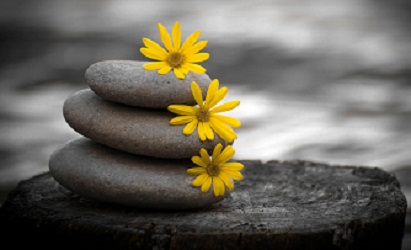PTSD Recovery: Coping With Trauma Anniversaries
The anniversary of a traumatic event can send those of us with posttraumatic stress disorder (PTSD) into a tailspin, bringing up negative emotions and PTSD symptoms more than usual. Coping with these feelings and reactions can seem overwhelming, frustrating and even useless, but I have found that there are ways of managing them when that time of year rolls around. Trauma anniversaries can be an opportunity for growth and healing if you allow them to be.
My Reactions to Trauma Anniversaries with PTSD
The New Year's holiday marks the time of year that I suffered my worst trauma, a rape that occurred nearly three decades ago. When the holiday gets close, even all these years later, some of my PTSD symptoms amp up and I feel anxious, depressed and angry. This year was no different. As New Year's approached my thoughts and feelings slipped back to the past and hung out there for a while. While I did have some welcomed distraction because we had a friend visiting from out of town, I still found myself sad and anxious for a few days. Memories of the rape popped into my mind against my will and thoughts about how my life would be different if it hadn't happened rattled around in my head.
Ways to Cope and Heal on Trauma Anniversaries

It's so easy to get caught up in those memories and thoughts, to forget about the progress that I have made in my PTSD recovery. However, there are some ways to cope that remind me how far I have come and help me continue to heal. Some of these may help you, too:
- Talk about it with others who understand. Talking about my PTSD isn't always easy, but it's always worth it. On New Year's morning, with teary eyes, I said to my husband, "Twenty-nine years ago, I was waking up after being raped the night before." He said he knew, and he was so sorry. That simple acknowledgement let me know that he understood and validated my feelings of sadness.
- Practice self-care and take it easy. One thing that I have learned in recovery is that self-care is not selfish. When I am dealing with feelings related to my PTSD, the most important thing I can do for me and my family is take care of myself. Things like taking a nap, a hot bath or saying "no" to activities that come up help me cope and heal.
- Acknowledge and express your feelings about your trauma and your recovery. Sometimes the simple act of getting thoughts out of my head gives me relief from anxiety and depression. For me, writing is what works. I journal more when I am dealing with PTSD symptoms and it helps even when no one else reads it.
- Reframe your way of thinking about your trauma. Find a statement or affirmation that changes the perspective of what happened to you, and say it to yourself often. I choose to say, "I am a survivor, not a victim." It reframes my thinking, making it more positive.
The most important thing to remember when the anniversary of your trauma is approaching is that it doesn't have to become a reliving of the event. You can find ways to deal with it effectively and make it through another year of recovery and healing.
Find Jami on Facebook, on Twitter, on Google+, and on her blog.
APA Reference
DeLoe, J.
(2016, January 7). PTSD Recovery: Coping With Trauma Anniversaries, HealthyPlace. Retrieved
on 2026, February 4 from https://www.healthyplace.com/blogs/traumaptsdblog/2016/01/ptsd-recovery-coping-with-trauma-anniversaries
Author: Jami DeLoe
Some good advice, with your last comment I would turn the phrase around and tell myself "I am not a victim, I am a survivor!", (was taught in therapy that to finish off with the 'positive' sticks in the mind better!).
